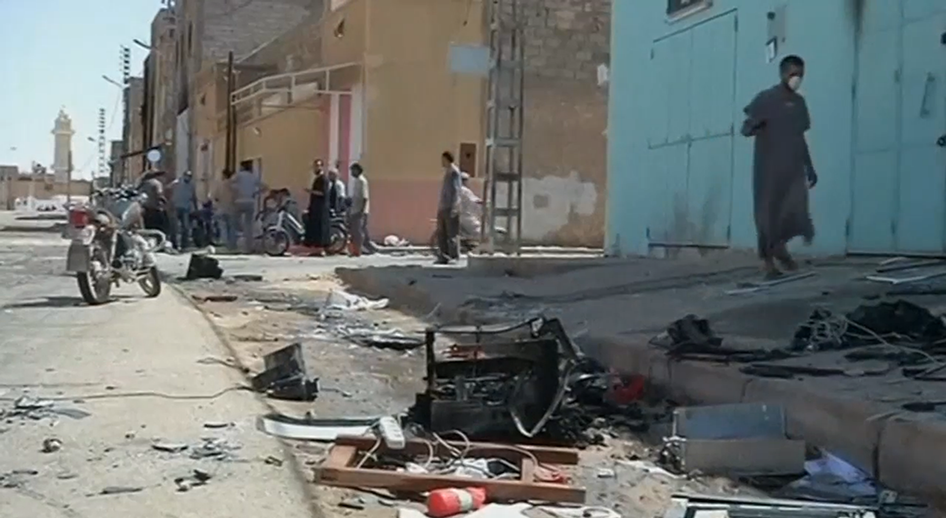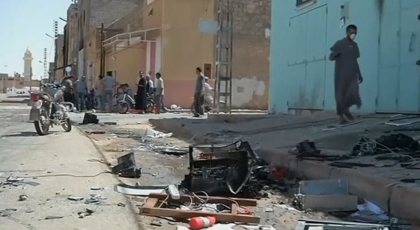
HRW Denounces Algeria’s Detention of Pro-Autonomy Activists
 Human Rights Watch has called on Algerian authorities “to release or try in a fair and open trial a pro-Amazigh activist, Kameleddine Fekhar, and his 24 co-defendants”.
Human Rights Watch has called on Algerian authorities “to release or try in a fair and open trial a pro-Amazigh activist, Kameleddine Fekhar, and his 24 co-defendants”.
Fekhar has since 2013 called for autonomy of the Mzab, a northern Sahara region, and has condemned the Algerian government for “complicity in crimes against humanity by Sunni Arabs against the Amazigh, or Berber, ethnic minority” in the region, said HRW in a press release.
All have been in pre-trial detention since July 9, 2015. They face the same charges, which include participating in a terrorist act and inciting hatred, for their alleged role in violent confrontations between the Amazigh and the Arab communities on July 7 in the Mzab. The accused, all from the region, could face the death penalty.
“If the government has evidence that Fekhar played a real role in the tragically violent events and is not being held merely for his strong views, it should produce the evidence in open court. If not, it should release him”, said HRW director for MENA region, Sarah Leah Whitson.
Fekhar headed the Algerian League for Human Rights chapter in the town of Ghardaia from 2004 to 2014. In late 2013, he founded the Movement for the Autonomy of the Mzab. Most or all of his co-defendants are believed to be supporters of this cause.
The Algerian police arrested 25 people at Fekhar’s house in Ghardaia. After they spent six days in police detention, a public prosecutor in the first instance court of Ghardaia brought the 18 charges against them. An investigative judge issued an order for their pretrial detention. The group was transferred to the Ménéa prison, 270 kilometers south of Ghardaia. The pre-trial investigation continues.
The inter-communal violence that erupted in July – the latest such episode in an ethnically tense region – left 25 people dead and more than 70 injured, from both communities, most from gunfire. The two communities have clashed sporadically over property, land ownership, and other issues.
During an earlier round of ethnic clashes, in November 2013, Mozabites in the city of Guerrara accused the security forces of torturing at least 10 people who had been detained. Human Rights Watch sent a letter to the Algerian authorities in November 2014 to inquire about investigations into the complaint the 20 men filed with the prosecutor of the First Instance Tribunal in Ghardaia. Human Rights Watch said it has not received a reply.
On July 2, 2015, Fekhar addressed a letter to United Nations Secretary General Ban Ki Moon requesting UN intervention to protect against what he called “the apartheid and ethnic cleansing” practiced by the Algerian government against the Mozabite community.
